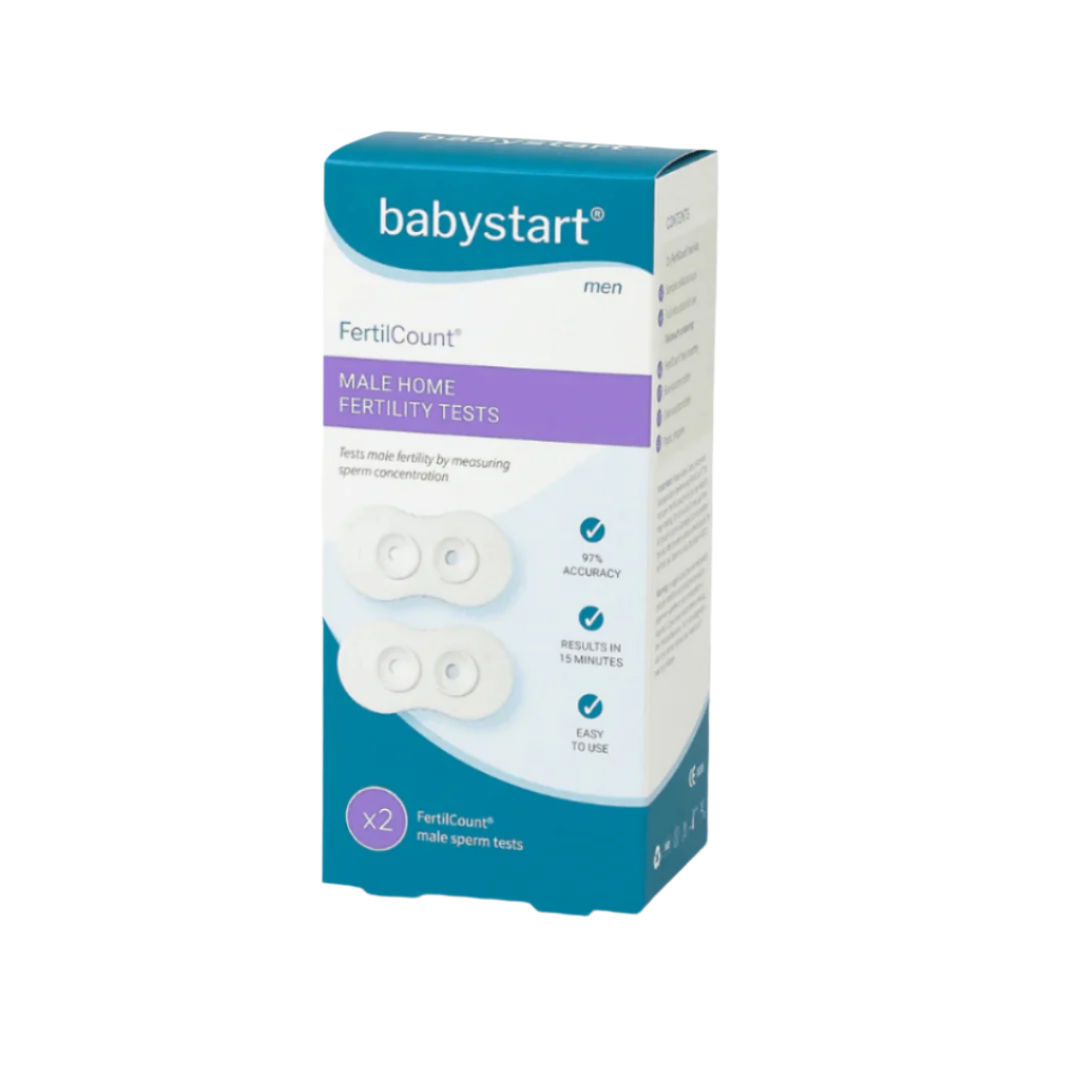The Journal
Boost Your Wellbeing: 5 Simple Steps to a Happier Life
Maintaining good mental health is crucial for overall well-being, and the NHS provides a comprehensive guide to enhancing your mental health through five key steps: Connect with Others: Engaging with friends, family, and colleagues helps build a support network. Whether it's sharing meals, joining clubs, or simply catching up over a call, these connections provide emotional support and a sense of belonging. Be Physically Active: Physical activity is not just about improving fitness; it also boosts mood and reduces anxiety. Activities like walking, cycling, or even gardening can be effective. The key is to find something you enjoy that fits into your daily routine. Learn New Skills: Acquiring new skills can boost your self-confidence and provide a sense of achievement. Whether it's learning to cook, taking up a new hobby, or pursuing an online course, the process of learning can be as rewarding as the skills themselves. Give to Others: Acts of kindness and giving can create positive feelings and help build a sense of community. This could be through volunteering, helping a neighbour, or simply giving a compliment. These actions not only benefit others but also enhance your own mental wellbeing. Be Mindful: Mindfulness involves paying full attention to the present moment, including your thoughts, feelings, and the world around you. Practices like meditation, yoga, or even mindful walking can help you develop this awareness, reducing stress and improving your emotional health. For those seeking more support, consider exploring online resources, local community centres or networks, or speaking with a mental health professional. The NHS website offers further guidance and links to supportive services, providing a good starting point for anyone looking to improve their mental wellbeing. Tips and tricks: When starting anything new, start small. Our blog on habit stacking gives the lowdown on how to create consistency with new habits, check it out here. Enlist a friend or family member: going it alone is hard! Finding someone to keep you on track can help, and make it more fun in the process. Celebrate the small wins! Create some really small goals to focus on. You wouldn’t expect to run a 10k straight away, so neither should you expect to change your lifestyle overnight. Journaling is a great tool for mindfulness but can be a tricky skill to master, so a guided journal can help you to get started. If you've got time, volunteering is a great way to make friends and build community, and it makes you feel good. Council websites will often have a volunteering portal which you can sign up to. Check out Stoke-on-Trent Council's version here. For more detailed advice and support options, visit the NHS's mental wellbeing guide.
Learn moreA letter to my infertility
As I sit down to write, my mind drifts back to the challenging times I've faced recently. It is said that our most profound growth often stems from our deepest struggles, and I have come to understand this truth in a deeply personal way. Experiencing trauma has been like walking through a dense forest with no clear path. The darkness and uncertainty have at times felt overwhelming. Yet, within this turmoil, I have discovered a surprising resilience and a renewed sense of purpose. The journey through pain has not been easy, but it has been transformative. Fertility, in its broadest sense, speaks to the capacity to generate, nurture, and bring forth new life. In the context of our lives, it also refers to our ability to cultivate new beginnings from the ashes of our past. The experiences we endure, no matter how harrowing, can plant seeds of strength, empathy, and wisdom within us. During this traumatic period, I have felt a profound array of emotions – fear, anger, sadness, and sometimes even hopelessness. Yet, alongside these, there have been moments of unexpected joy, connection, and clarity. These contrasting emotions have shaped who I am today, allowing me to see the world with a more compassionate and understanding heart. In the fertile ground of my heart and mind, I have learned to plant new dreams and aspirations. The trials have taught me patience and the importance of self-care. I have come to appreciate the small victories and the gentle steps forward, recognising that each day brings with it a chance to heal and grow. The trauma I experienced will always be a part of my story, but it does not define me. Instead, it has enriched my life in ways I never thought possible. It has taught me that even in our darkest moments, there is potential for light. Through the cracks of our brokenness, new life can emerge. As I continue to navigate this journey, I am filled with hope and determination. I am learning to embrace the process of healing, understanding that it is not linear but rather a winding path with its own rhythm. The scars I carry are not marks of weakness but symbols of survival and resilience. Anonymous
Learn moreA guide to your Fertility Consultation with your GP - By OVUM
Written by Dr. Phoebe Howells. Dr. Phoebe has been a doctor since 2012 with a decade of experience in Obstetrics and Gynaecology focusing on fertility. She's undertaken a clinical fellowship in Reproductive Medicine at a top London fertility clinic alongside authoring articles, sharing insights at global conferences, contributing to fertility trials for women with adenomyosis and working as the Co-Chief Medical Officer for OVUM. Embarking on a fertility journey can be a profound and sometimes complex experience. Whether you are just contemplating your future fertility options, in a same-sex relationship, looking to egg freeze or already eagerly trying to conceive, your GP is often your first point of contact and an invaluable resource in navigating this path. This blog aims to prepare you for your fertility consultation with your GP, offering insights into when you should first approach them, what to expect, and key questions to ask. Let's be honest: It can be a very stressful time. So, hopefully, after reading this, you will feel empowered to take that first step in booking the consultation and understand the next steps while making informed decisions. If it is taking longer to conceive than you thought, it doesn’t necessarily mean that something is wrong, but a doctor can assess and see if there is anything immediate that can be treated. They will also advise when you should be referred to an IVF clinic where further tests may be carried out. How long is too long? How long should it take? Remember, 8/10 couples under the age of 40 will conceive in one year, so 80% of women will get pregnant if they wait a whole year. 9/10 couples under the age of 40 will conceive in 2 years. The problem is that when you are trying to conceive, a year feels like a very long time, and every period that you have is another knock to your morale, 2 years can feel like an eternity. Remember, the National Institute of Clinical Excellence, otherwise known as ‘NICE’ recommends that you should see a doctor if - you are under 35 years old and have been trying to conceive for 12 months - you are over 36 years old and have been trying to conceive for 6 months It varies with age because as you get older, you are more likely to have issues, so it is better to investigate sooner. If you are concerned that you are not getting pregnant, speak to your GP. It's better to speak to them earlier rather than later, and they can always advise you when to contact them again in the future. Of course, if you or your partner have a known problem that may be impacting your fertility, such as a problem with your fallopian tubes or your partner has a known low sperm count, then you don’t have to wait before seeing your GP. What to expect from the consultation It is usually advised that you and your partner both attend the appointment. You may be asked many different questions, so getting first-hand information from the relevant person is helpful. What questions you may be asked, and what information to have ready. Information regarding your menstrual cycles, most importantly your last menstrual period and a vague knowledge of a pattern of your menstrual cycles. This will save you from getting flustered during the appointment and frantically scrolling through your diary, trying to find key events when you started bleeding. If you asked me right now, I wouldn’t remember when mine started; I wouldn't have a clue. History of all previous pregnancies, including terminations and miscarriages and how they were managed. Sometimes, you may want to share this information with your GP later when alone, and it can be kept confidential, but it is important to know if you have had any procedures or complications. Any medical conditions, past or present Any surgery that you have had and any operation notes that you may have been given, if relevant to Gynaecology. If you have had any fertility tests so far, try and bring the results with you if you think the GP may not have access to them already. If in doubt, bring them. History of previous and current contraception Any previous sexually transmitted infections, again you may not want to share this whilst your partner is present, and this can be kept confidential. It is helpful to know if you may be offered particular tests, such as fallopian tube patency tests if this is the case. When your last smear was. If in a heterosexual relationship, how often you have intercourse and if either of you experiences any difficulty, such as erectile dysfunction or painful intercourse which can stop you from having it regularly? For the men, any history of groin operations or undescended testicles or any history of testicular trauma. Reading through these questions, you may feel dread that you have to delve so deep into your personal life, embarrassed that you have to talk about your sex life, and may be worried that you will have to give information that you don’t want your partner to know about. Be reassured that everything will be confidential, there will be no judgement, and they will only ask questions important to understanding your fertility health. Believe me, after a couple of consultations, you will be happy to discuss anything. The Examination Both partners (or solo parent if that’s you) will need their height and weight checked to calculate a body mass index (BMI), as reaching and maintaining a healthy weight is not only key to helping your fertility, but there are also strict cut-offs for female BMI, with the NHS only funding IVF if you have a BMI between 19-30. Not knowing this at the beginning of your journey could string you along with false hope of funded treatment, only for your dreams to be quashed when reaching the fertility clinic itself. During the consultation, your GP may or may not want to examine you. For females, the GP may want to do a speculum examination and swabs to check for infections. They may also want to feel your tummy to see if they can feel any masses, such as fibroids, which can make your uterus enlarged. For men, an abnormal semen analysis may prompt a testicular exam to see the size of the testes. They may want to look for any signs of infection or lumps or swellings that could indicate a potential cause for infertility, such as a varicocele. What investigation might be done? The GP may advise to carry on trying to conceive and to come back if not pregnant within a certain time frame. However, they may also advise you to have some initial tests. Chlamydia Screening This is a urine or swab test, and if it comes back positive, a course of antibiotics will be prescribed. A history of sexually transmitted infections can sometimes cause blockages in your fallopian tubes, and there are different tests to check for this. These tests are called tubal patency tests. Blood Tests They may take a progesterone level, which is taken 7 days before your expected period. So, in a 28-day cycle, it will be taken on day 21. Of course we don’t all have 28-day cycles, and this will be taken into account by your GP. Follicle stimulating hormone (FSH), Luteinizing hormone (LH) and oestradiol blood tests may be taken on days 2-4 of your cycle. These can give you some indication of your ovarian reserve. Your GP may also order blood tests to check your thyroid levels. Anti-mullerian hormone test (AMH) is another test which gives a clearer indication of your ovarian reserve. However, it is not routinely requested by GPs. If this is not done during the initial investigations, it will absolutely be tested for when you reach the fertility clinic. A low ovarian reserve would suggest referral to the fertility specialist sooner rather than later. Your ovarian reserve declines with age, which is particularly important in those over 35. Ultrasound Scan A transvaginal or transabdominal scan will give a great insight into any structural abnormalities that may be contributing to infertility. For instance, some women have differently shaped wombs that can impact fertility; they may have ovarian cysts or fibroids. All of this information is key to knowing the next steps. Semen Analysis This is a crucial test to investigate male infertility. The male partner will need to provide a fresh sample of semen directly into a sterile pot. The pot must be taken to the lab within one hour for an accurate result. The different parameters that will be checked include, -the total concentration of sperm -the number of motile sperm (how many are moving) -Progressive motility (how many are moving in one direction, not just going around in circles) - morphology (how many sperm look structurally normal with one head and one tail connected in a straight line) If the first result is abnormal, it is usually wise to repeat in 3 months when the body has made a whole new bunch of sperm. These investigations' results can take one to three weeks to come back. Questions to Ask During Your Consultations Which tests are needed for you, and when will you expect to get the results? What funding does your area provide? It is a postcode lottery, and NHS funding can be very varied and complicated. It is worth checking online which Integrated Care Board (ICB)I your address falls within and accessing their fertility treatment policy. This will let you know upfront what is and is now available in your postcode. They will recommend you take preconception and, once pregnant, prenatal supplements. Preconception supplements are particularly important for egg health and normal fetal development. They may also suggest preconception supplements for male fertility. Next Steps after your consultation After collating all of the results, the GP will advise whether you need a referral to a Gynaecologist, Urologist, Fertility Specialist or other relevant specialist. The timing of your referral to a fertility specialist will depend on all your results and the time you have already taken to conceive. It is important to know how long the NHS needs you to have been trying to conceive before NHS funding will be granted for IVF treatment. This is why checking your ICB’s fertility treatment policy is so useful. If you are self-funding treatment, you can present directly to private Fertility clinics without a referral from the GP. However, if you use your private health insurance, you will often need a GP referral letter, so a consultation with one will still be necessary. Remember, a GP has approximately 7 minutes to see you. There is a lot that needs to be done, so it may not happen immediately, and they may just see an obvious cause for infertility and refer you directly to a fertility specialist without completing every other investigation. Good luck with your journey
Learn moreThe Digital Detox Movement: Reclaiming Your Life from Social Media
The digital detox movement advocates for taking intentional breaks from digital devices, particularly from social media platforms. This movement is not about shunning technology entirely but about finding a balance and fostering healthier relationships with our digital lives.
Learn moreThe Impact of Fertility Issues on Mental Health
Introduction:Bringing a child into the world is often portrayed as a natural and joyous experience. However, for many individuals and couples, the journey to parenthood can be fraught with challenges. Fertility issues, which affect millions of people worldwide, not only pose physical hurdles but also deeply impact mental health. In this blog, we delve into the profound emotional toll of fertility struggles and the critical need for better support during treatment.The Emotional Rollercoaster of Fertility Challenges:The diagnosis of infertility can shatter dreams and expectations, leading to profound feelings of grief, loss, and inadequacy. Couples may experience a range of emotions, including sadness, anger, guilt, and frustration. Each failed attempt at conception can feel like a devastating blow, intensifying feelings of hopelessness and despair.Moreover, fertility treatments such as in vitro fertilization (IVF), intrauterine insemination (IUI), or surrogacy often entail a gruelling regimen of medications, injections, and invasive procedures. The physical toll of these treatments, coupled with the emotional strain of navigating uncertainty and disappointment, can take a significant toll on mental well-being.The Stigma Surrounding Fertility Issues:Despite the prevalence of fertility challenges, there remains a pervasive stigma surrounding infertility. Society often equates fertility with personal worth and fulfilment, leading individuals and couples to suffer in silence rather than openly discussing their struggles. This silence can exacerbate feelings of isolation and shame, further compounding the mental health burden.Moreover, fertility issues are frequently misunderstood or minimised by those who have not experienced them first-hand. Well-meaning but insensitive remarks from friends, family members, or even healthcare providers can deepen feelings of alienation and inadequacy, amplifying the psychological impact of infertility.The Lack of Support During Treatment:While medical interventions offer hope for conception, the journey through fertility treatment can be emotionally taxing, yet the support available often falls short. Many individuals report feeling isolated and unsupported during this challenging time, exacerbating feelings of anxiety and depression.One significant barrier to adequate support is the financial burden associated with fertility treatments. In many countries, these treatments are not fully covered by insurance, placing them out of reach for individuals and couples with limited financial resources. The prohibitive cost of fertility care further exacerbates disparities in access to support services, leaving marginalised communities particularly vulnerable to the mental health consequences of infertility.Additionally, the emotional aspect of fertility treatment is often overlooked or underserved within the healthcare system. While medical professionals focus on physical interventions, the psychological impact of infertility may receive inadequate attention. Counselling and support services specifically tailored to the unique needs of individuals and couples undergoing fertility treatment are essential but often lacking.The Importance of Comprehensive Support:Addressing the mental health needs of individuals and couples facing fertility challenges requires a multifaceted approach. Firstly, there is a need to break the silence surrounding infertility and challenge the stigma that often accompanies it. By fostering open and compassionate dialogue, we can create a supportive environment where individuals feel comfortable seeking help and sharing their experiences.Furthermore, healthcare providers must recognise the integral role that mental health plays in the fertility journey and integrate psychological support services into fertility clinics and treatment protocols. Counselling, support groups, and resources for coping with stress and grief can provide much-needed emotional support to those undergoing fertility treatment.Policy changes are also needed to improve access to fertility care and support services. Greater insurance coverage for fertility treatments would alleviate the financial burden faced by many individuals and couples, ensuring that cost does not serve as a barrier to accessing care.Conclusion:Fertility issues can have a profound impact on mental health, yet the support available to individuals and couples undergoing treatment often falls short. By fostering open dialogue, challenging stigma, and improving access to comprehensive support services, we can better address the emotional needs of those facing fertility challenges. Together, we can provide a supportive environment where individuals feel empowered to navigate the journey to parenthood with resilience and hope.
Learn moreNavigating Fertility Treatment Funding in the UK: Criteria and Barriers
Find out why accessing fertility treatment isn't as straightforward or fair as we would like it to be here at femme health, in our latest blog.
Learn moreWhy Your Health Before Pregnancy Matters
When we talk about getting ready for a baby, we often think about decorating the nursery or picking out cute onesies. But there's something really important that often gets overlooked: your health before pregnancy. Believe it or not, your wellbeing before you even think about getting pregnant plays a huge role in how things go down the road. So, let's dive into why prepping your body before pregnancy is a big deal. Why Your Health Before Pregnancy Matters: Boosting Baby-Making Power: Think of it like this: the healthier you are, the better chance you have of making a baby. Simple habits like eating right, moving your body, and keeping stress in check can make a big difference in your fertility. So, if you're thinking about expanding your family, taking care of yourself is step one. Dodging Pregnancy Complications: Nobody wants a bumpy ride during pregnancy. By getting your health in check beforehand, you can lower the chances of things like having your baby too early or dealing with health problems along the way. It's like laying a smooth road for your baby's journey into the world. Setting Up Baby for Success: Your body is like the cosy home where your baby grows for nine months. By giving it the right nutrients and care before pregnancy, you're creating the perfect environment for your little one to thrive. It's like giving them a head start before they even arrive. Check out our fertility supplements here. Prioritise good sexual health: Taking care of your sexual health should be a priority: Untreated STIs can pose serious risks during pregnancy, such as transmission to the foetus, premature birth, or other complications. Taking Care of Mum: Pregnancy can be tough on your body, so it helps to start out strong. By tackling any health issues before you get pregnant, you're giving yourself a better shot at feeling good throughout the journey. After all, a healthy mum means a happier pregnancy. Dads, You're in This Too!: It's not just mums who need to think about pre-pregnancy health. Dads-to-be play a big role too. Eating well, staying active, and avoiding bad stuff like smoking can all help make super sperm and set the stage for a healthy baby. Specific supplements designed for sperm health can be found here. A Lifetime of Health: Taking care of yourself before pregnancy isn't just about those nine months. It's about setting up good habits that can stick around for life. When you start out healthy, it's easier to keep the ball rolling and give your family the gift of wellness for years to come. Simple Changes to Consider Before Conception: 1. Stop smoking: the NHS has free stop smoking services available here. 2. Reduce alcohol intake: Try having at least 4 nights without alcohol a week. There are lots of lovely non-alcoholic drinks available - try using your favourite glass and adding fruit to make it feel special. 3. Manage your stress levels: taking 5 minutes out of your busy day to practice relaxation can make a big difference. Getting outdoors first thing in the morning is also really good for stress levels: take your morning tea or coffee outdoors! 4. Move more: Too much too quickly is not recommended if you're not used to regular exercise so try adding some short walks into your day. Habit stacking is great for sticking to your goals (read more here), so why not take a short walk after you have put the bins out? 5. Check on your sexual health: STI detection and treatment has never been easier or more discreet. A wide range of at-home testing services are available now, check out our sexual health tests here. Conclusion: Getting ready for a baby isn't just about picking out baby names and decorating the nursery. It's also about prepping your body for the incredible journey ahead. By taking care of your health before pregnancy, you're giving yourself and your future baby the best possible start. So, whether you're thinking about starting a family soon or somewhere down the road, remember: your health matters, even before you see those two pink lines.
Learn moreCelebrating Women's History Month
As March unfolds, so does a vibrant celebration of resilience, courage, and achievement — Women's History Month. It's a time to reflect on the extraordinary contributions of women throughout history and their ongoing journey towards equality and empowerment. This annual observance provides a poignant opportunity to delve into the rich tapestry of women's experiences, from the unsung heroines who shaped communities to the iconic figures who defied norms and shattered glass ceilings. Across the globe, women have left an indelible mark in every sphere of human endeavour. From science, literature, and politics to art, business, and social activism, their influence knows no bounds. Yet, too often, their stories have been relegated to the footnotes of history. Women's History Month serves as a powerful corrective, amplifying their voices and illuminating their legacies. We celebrate visionaries like Marie Curie, whose ground-breaking research in radioactivity earned her two Nobel Prizes, or Rosa Parks, whose act of defiance catalysed the civil rights movement. We honour the resilience of Malala Yousafzai, who continues to advocate for girls' education despite facing adversity, and the tenacity of Amelia Earhart, whose pioneering flights inspired generations of aviators. But Women's History Month is not only about commemorating the past; it's also about galvanising action in the present. It's a call to address persistent inequities and dismantle barriers that hinder women's progress. It's about fostering an inclusive society where every woman and girl can thrive, irrespective of their background or circumstances. In today's world, we see women leading businesses, commanding armies, and spearheading social movements. Yet, we also recognise the unfinished work ahead. Gender disparities persist in areas such as pay equity, representation in leadership roles, and access to healthcare and education. Women continue to face discrimination, violence, and systemic injustices. As we honour the achievements of women past and present, let us recommit ourselves to the pursuit of gender equality. Let us amplify women's voices, challenge stereotypes, and create pathways for advancement. Let us support initiatives that promote women's empowerment and ensure that every girl grows up in a world where her dreams are limitless. This Women's History Month, let's celebrate the courage, resilience, and achievements of women around the world. Let's honour their contributions, learn from their stories, and work together to build a future where gender equality is not just a dream but a reality. After all, when women succeed, societies prosper, and humanity thrives.
Learn moreCelebrating your story with Anna Hobson
Drawing from her background in culture and human behaviour, Anna Hobson found her purpose in life coaching after experiencing mental health challenges, including eating disorders and OCD, during a challenging transition in her early thirties. Read on to learn more about self-sabotage. Written by Anna Hobson Hi I’m Anna Hobson and I’m a certified coach with the European Mentoring Coaching Council since 2016 and I’m affiliated with the UK's Association of Executive Coaches. Drawing from my background in culture and human behavior, I found my purpose in life coaching following a challenging transition in my early thirties. Having personally experienced mental health challenges, including eating disorders and OCD, I understand the impact of the "be perfect" mindset on quality of life. I’m passionate about helping others navigate their inner dialogue and self-narrative, particularly empowering women to reach their full potential. "The worst bully you'll ever experience in life, is yourself." As the ‘self love’ movement continues to gain momentum, we can find ourselves in juxtaposition. Are you comfortable with ‘self love’? What exactly does ‘self love’ really mean? Why do I still beat myself up about what I’m not doing, and overlook everything I am doing?! Cut yourself a little bit of slack please! I don’t know about you, but I absolutely am my own worst critic; from the finest of details about my work, my appearance, my behaviours. I critique myself on such a micro level it’s exhausting. We are being encouraged more and more to be kind to ourselves, but for many of us, this isn’t an easy feat. Without wanting to pay lip service to it, the act and habit of self love (I prefer self compassion) takes practice. By just noticing one thing that feels good about yourself, one thing you did well today, or by holding the space that little bit longer in the mirror to really accept your beauty, matters. Warm up your inner dialogue and stop bullying yourself. "Are your people, really your people?" Our family and friends form our largest influence of social connections and are usually the most important relationships in our world. But what if I asked you to notice how you feel when you’ve spent time around them? Have you ever seen those little fridge magnets in your local garden centre with quotes like ‘Friends are the family we choose’? It’s little nudges like this that as I’ve got older, have got me thinking. In my own adult life, when I’ve experienced highs and really tough and challenging lows, if I reflect on those times and I’m honest with myself, the people I thought would always be there, weren’t always there. It’s a hard reality to face into and can feel really quite painful, but it can also equip you to protect your soul, your energy and importantly, your heart. Your people are the ones who should champion you, celebrate you, care for you, be curious about you and your life, show you compassion, accept you, acknowledge your growth – not criticise it…. So I ask you, are your people, really your people? "Today, I choose to wear my own hat!" I don’t know about you, but sometimes I feel as though the weeks fly by and whilst I have the bet intentions to squeeze every opportunity out of every day, I blink and another week has gone! There are many hats we wear; work hat, mum hat, wife hat, girlfriend hat, daughter hat, friend hat, chauffer hat, carer hat, chef hat, pet nanny hat, personal maid hat, fridge filler hat and so on… phew, that’s a LOT of hats and it’s nowhere near all of them. Question…. when do you take some properly selfish time to wear your own hat and show up for yourself? I suspect if you’re really honest, the answer will be rarely. Whatever that looks like, even if it’s a simple bubble bath, candles lit, with the door closed so you have some uninterrupted time, just for you. This is a call to action, for you to take some properly selfish time out. Show up for yourself today - the other hats can wait. I promise.
Learn more
In The Press

Simplify Your Fertility Tracking with Tempdrop
Take the guesswork out of cycle tracking with Tempdrop, the smart wearable thermometer that fits seamlessly into your routine. Designed to learn your unique patterns, it provides accurate, reliable insights without the hassle of early wake-ups or daily charts.


















